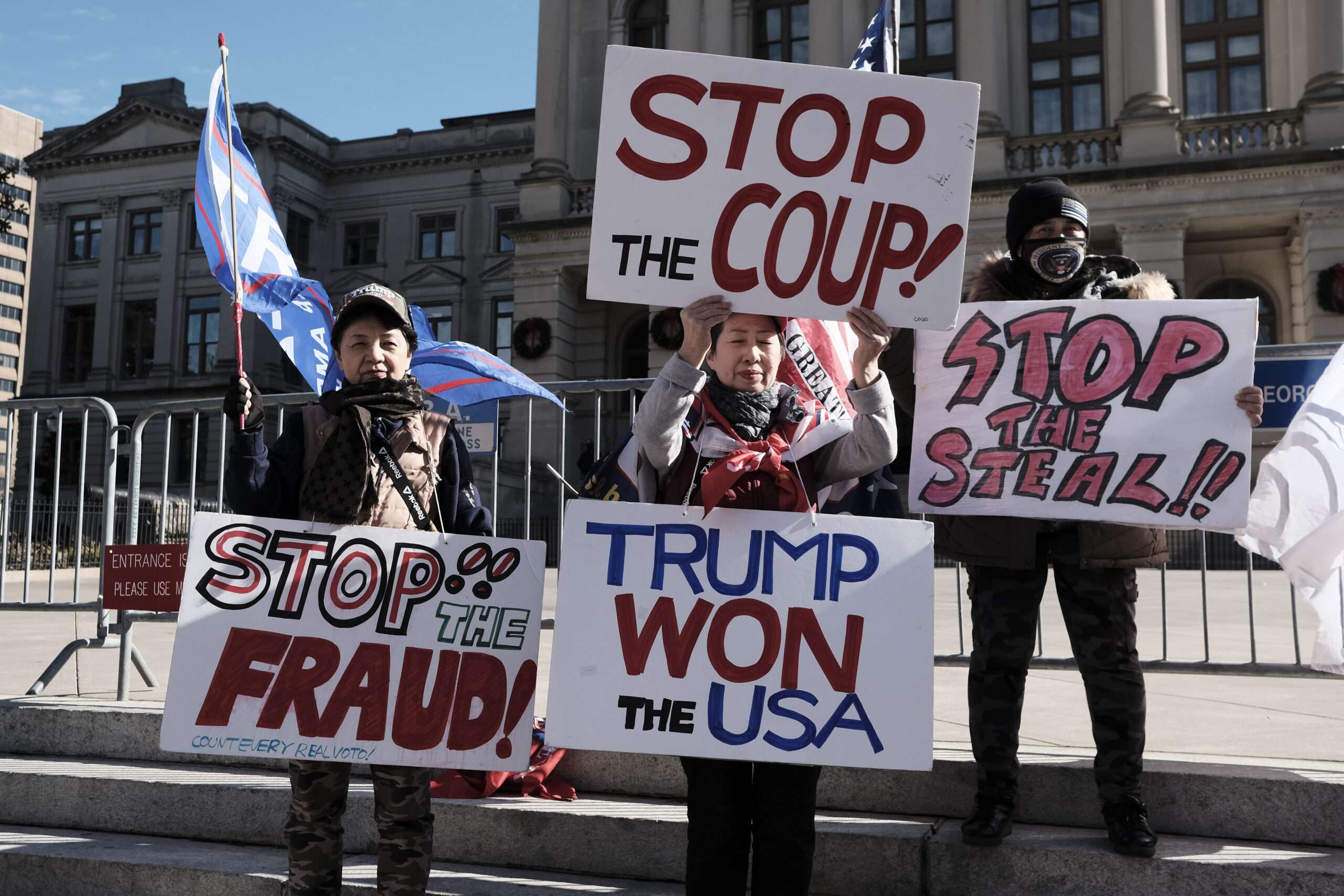Conservative group concedes it can’t back up its election fraud charges

In the aftermath of the 2020 presidential election, a conservative group named True the Vote claimed that President Joe Biden’s narrow victory in Georgia was the result of widespread ballot fraud—including what it called “coordinated efforts” to stuff ballot drop boxes in the Atlanta metro area.
When ordered by a district judge to provide evidence supporting those explosive claims, however, True the Vote offered a very different story. In documents submitted to a Fulton County court in December and made public this week, the group repeatedly denied having any evidence of the alleged ballot fraud or contact information for alleged whistleblowers with knowledge of the supposed scheme.
True the Vote had been ordered to turn over evidence to the State Election Board as part of an ongoing investigation into claims of voter fraud in the 2020 election, according to the Atlanta Journal-Constitution, which first reported on the new court filings Wednesday. The state board sought a subpoena after the conservative group had previously declined to share its evidence—despite having filed a complaint with Georgia Secretary of State Brad Raffensperger in 2021 in which True the Vote said it possessed “a detailed account of coordinated efforts to collect and deposit ballots in drop boxes across metro Atlanta.”
Some of those claims were recycled into a movie by conservative provocateur Dinesh D’Souza, including surveillance videos that allegedly showed ballot boxes being stuffed. A subsequent investigation by the state board found that those claims were unfounded: The individuals identified in D’Souza’s movie were dropping off ballots filled out by family members, which is legal under Georgia law.
The inability of True the Vote to turn over any additional corroborating evidence or provide the court and state board with documentation to support its claims is another blow to the group’s credibility—and to the ongoing efforts by Trump supporters to invalidate the 2020 election.
Meanwhile, Georgia officials have completed three recounts showing that Biden won the 2020 election there, and subsequent investigations have failed to turn up evidence of widespread voter fraud. In response to former President Donald Trump’s claim that thousands of dead people voted in Georgia, the state election board found that a total of four absentee ballots were cast by voters who had deceased before Election Day. Similarly, the Trump campaign’s claim that two election workers in Atlanta engaged in malfeasance while counting votes was disproven after a state investigation.
“Once again, True the Vote has proven itself untrustworthy and unable to provide a shred of evidence for a single one of their fairy-tale allegations,” Mike Hassinger, a spokesman for Raffensperger’s office, told the Associated Press. “Like all the lies about Georgia’s 2020 election, their fabricated claims of ballot harvesting have been repeatedly debunked.”
An absence of evidence is not always evidence of an absence, but at a certain point, it seems reasonable to expect those who have made explosive claims of election fraud to offer something to demonstrate the validity of those theories.
From Rudy Giuliani to Sidney Powell to True the Vote, it now seems obvious that many individuals and groups with an interest in seeing Trump reelected either fabricated or exaggerated claims of election fraud after the 2020 election. They have a right to make outlandish claims, but no one should feel an obligation to take such evidence-free claims seriously.
Next time—and there will almost certainly be a next time—everyone ought to take a deep breath and approach claims of widespread voter fraud more skeptically.


